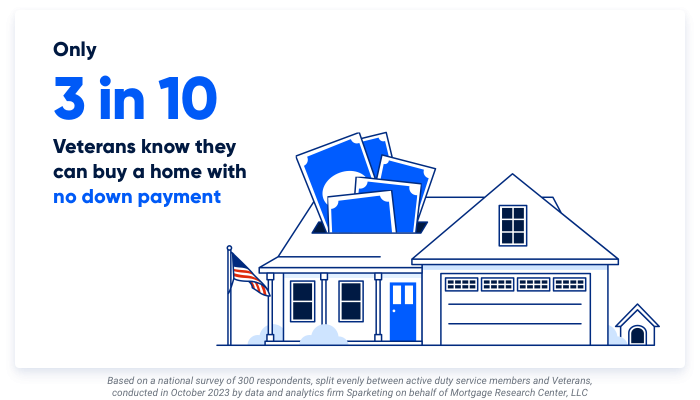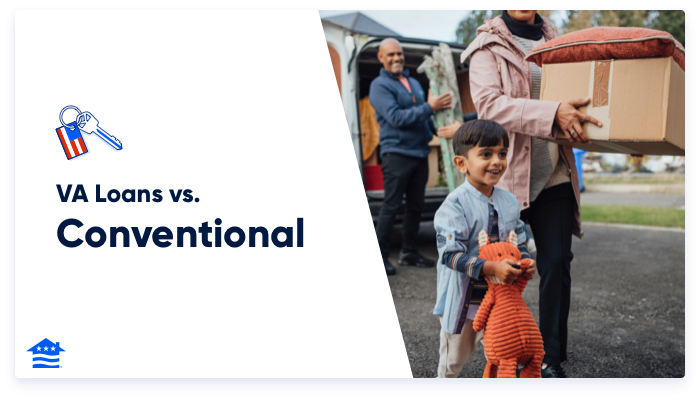When the time comes to make an offer on your dream home, asking the seller to pay your closing costs can seem like you're tempting fate. Not only are you hoping to get a great deal on the purchase price, but you're also expecting the seller to cover some or all of the upfront expenses that come with getting a mortgage.
The fear is that you'll upset the seller and wind up losing a property you love. The good news is you may be able to construct your offer in a way that ensures the seller doesn't "lose" money despite paying those costs.
Let's take a closer look.
Seller Paid Closing Costs
VA loan closing costs are part of every mortgage deal and home purchase. Some are costs associated with originating the loan, and others cover things like prepaid taxes and homeowners insurance, inspection fees and more.
Sellers can pay all of the costs involved with originating the loan and up to 4 percent of the loan amount in seller concessions, which represents anything of value outside of those origination costs. According to the VA Seller Concession Rule, concessions can include things like the prepaid expenses mentioned above and paying off a borrower's collections or liens.
Getting preapproved for a VA home loan will give you a pretty clear estimate of your likely closing costs. You'll walk into most negotiation situations knowing how much money you'll need to bring to the table at closing (unlike loan types, VA loans don't require a downpayment). It's important to have this information before you start shopping for houses and making offers on homes.
How to Get the Seller to Pay Closing Costs
1. Don’t Low-Ball Your Offer
If you’re planning on asking for the seller to pay some or all of your closing costs, it’s a good idea to make your offer close to the original asking price. When you put in your offer close to full-price sellers may be more flexible regarding seller concessions.
2. Be Ready to Move Quickly
No seller wants their sale to drag on for months. If you’re planning on asking the seller to pay for closing costs, make sure you are organized and are ready to close quickly on the home. Working with an experienced real estate agent who is familiar with the VA loan process can help ensure you have all your ducks in a row and are keeping the seller happy.
3. Don’t Contradict the Housing Market
Understanding whether you’re in a seller’s or buyer’s marketing is essential when asking sellers to pay closing costs. If you’re in a buyer’s market, you have the advantage because there are more houses than there are buyers. But if you’re in a seller’s market, you’re unlikely the only person putting an offer in on a house. This means that asking the seller to pay some of your closing costs could make your offer less competitive.
4. Balance Your Ask
Avoid making unreasonable demands on top of your ask for closing costs to be covered. While the VA appraisal might bring up repairs that need to be fixed, consider paying for some of the repairs yourself. Balancing what you ask the seller to cover with what you’ll cover as a buyer.
Answer a few questions below to speak with a specialist about what your military service has earned you.
Example of Negotiating Seller Paid Closing Costs
Let's say you're preapproved for up to $225,000, and your closing costs are likely to be about $4,000. You and your VA loan-savvy real estate agent begin looking at homes. You find one you love listed for $230,000. Now, depending on where in the country you're purchasing, there's often some back-and-forth between sellers and prospective buyers.
Let's say this seller expects some give-and-take negotiation, and they’re ultimately set on getting at least $220,000 for the property. You can make an offer near your max, say $224,000, and stipulate in the contract that the seller will pay your closing costs from the proceeds of the sale. You would give the seller $224,000, and they would turn right around and use $4,000 of that to cover your costs, leaving her the $220,000 they would ultimately settle for. The seller doesn't "lose" any money in an arrangement like this. But you'll need at least one thing to go right in order to make it work.
The VA Appraisal is Key
The VA property appraisal is an important stage for every home purchase, but it's especially critical when you structure a deal in this way. If the home fails to appraise for at least the purchase price you agreed upon, you're suddenly unable to get those closing costs covered. The lender is going to lend the lesser between the purchase price and the appraised value.
So, if you agree to buy a home for $224,000, but it turns out the home is only worth $220,000, the lender isn't going to give you a dime more than $220,000. At that point, you're facing another round of negotiation with the seller or possibly walking away from the deal entirely. Appraisals do fall short, but don't let that scare you.
You do have the option to challenge the VA appraisal if it seems low, but it's still common to have sellers pay most if not all of a VA homebuyer's closing costs in many parts of the country. That may be less of an option in more competitive housing markets, but you really won't know until you start talking with lenders and real estate agents. Having sellers pay closing costs is what allows countless VA borrowers to move forward with their purchases. There's no guarantee a seller will agree or that the home will appraise, but it's important to know and understand your options.
If you have questions about closing costs, VA appraisals or prequalification you can talk with a Veterans United VA Loan Expert any time at 855-524-7279.
» CALCULATE: Calculate your VA Loan savings
Related Posts
-
 VA Loan Down Payment RequirementsVA loans have no downpayment requirements as long as the Veteran has full entitlement, but only 3-in-10 Veterans know they can buy a home loan with zero down payment. Here’s what Veterans need to know about VA loan down payment requirements.
VA Loan Down Payment RequirementsVA loans have no downpayment requirements as long as the Veteran has full entitlement, but only 3-in-10 Veterans know they can buy a home loan with zero down payment. Here’s what Veterans need to know about VA loan down payment requirements. -
 VA Loan vs Conventional Loan: A Complete ComparisonHere we compare the primary differences between VA and conventional loans to show you when each option may be the best.
VA Loan vs Conventional Loan: A Complete ComparisonHere we compare the primary differences between VA and conventional loans to show you when each option may be the best.


